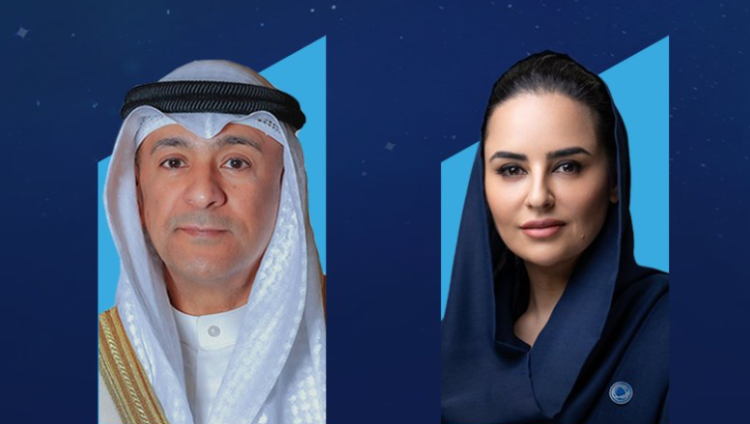Publisher: Maaal International Media Company
License: 465734
Digital Cooperation Organization: Cyber threats will cost global economy $10.5 trillion annually
اقرأ المزيد
Jassim Mohammed Al-Budaiwi, Secretary-General of the Gulf Cooperation Council, and Dima bint Yahya Al-Yahya, Secretary-General of the Digital Cooperation Organization, stressed the importance of digital diplomacy in bridging digital gaps, addressing economic, geographical and climate challenges, and reaching common solutions that contribute to the prosperity of the global economy, while Dima Al-Yahya indicated that cyber threats are expected to cost the global economy $10.5 trillion annually by 2025.
Jassim Al-Budaiwi, Secretary-General of the Gulf Cooperation Council, said: “The strong and growing relationship between the Gulf Cooperation Council and the Digital Cooperation Organization reflects a shared desire to enhance innovation and digital transformation through the exchange of expertise and knowledge, in an effort to realize the potential of these efforts in accelerating economic growth and sustainable development.”
Al-Budaiwi added, during the fourth edition of the Digital Cooperation Organization’s “Digital Diplomacy” event, which was held at the headquarters of the General Secretariat of the Gulf Cooperation Council in Riyadh: Digital diplomacy plays a pivotal role in bridging geographical, economic and cultural gaps. Through technology, we can bring the voices of marginalized communities to global platforms and ensure that no country or individual is left behind in the digital age.
He pointed out that digital diplomacy also contributes to addressing global challenges, whether in combating climate change, managing epidemics, or ensuring cybersecurity.
He stressed that global challenges require collective solutions through international cooperation and the exchange of knowledge, resources, and strategies in real time. He also stressed the role of digital diplomacy in promoting peace and security, noting that cybersecurity has become the cornerstone of national and international security, and that reaching agreements on laws and regulations for the responsible use of technology will reduce the risks of cyber conflicts and misuse.
Al-Badawi explained that digital transformation is an essential element in the development strategies of the Gulf Cooperation Council countries, as the region has witnessed qualitative steps by hosting global technology centers, investing in artificial intelligence, and enhancing cooperation with international organizations and the private sector to study the role of digital markets and their impact on economic development. He also stressed the importance of strategic data in the digital age, and the need to use it effectively to achieve development goals.
“Digital sovereignty cannot be achieved in isolation,” said Deema Bint Yahya Al Yahya, Secretary-General of the Digital Cooperation Organization. “With cyber threats continuing to escalate, and expected to cost the global economy $10.5 trillion annually by 2025, international cooperation has become an urgent necessity, not an option.” Al Yahya added that the digital divide is a major risk in our current era, with 2.6 billion people still offline and unable to access the enormous opportunities offered by digital transformation. At the same time, the digital economy has expanded at a rate of 2.5 times the global GDP. But these risks could become a driver of deepening inequality if we do not move together to achieve inclusiveness. “Technology, while an engine of cooperation, innovation and economic growth, is also deepening gaps and exposing security to new risks. Technology and diplomacy can no longer live in separate worlds,” she continued. She pointed out the launch of the (Diplomatic Connect) platform to be a space where diplomacy interacts with technology, with the aim of enabling countries to cooperate and innovate joint solutions to achieve comprehensive digital prosperity. Al Yahya concluded her speech by pointing out that digital sovereignty, which gives countries the ability to control their digital infrastructure and protect their citizens’ data, must not operate in isolation from international cooperation, stressing the need to build enlightened and fair partnerships that address global challenges and enhance common interests to ensure a more inclusive and sustainable digital future.








